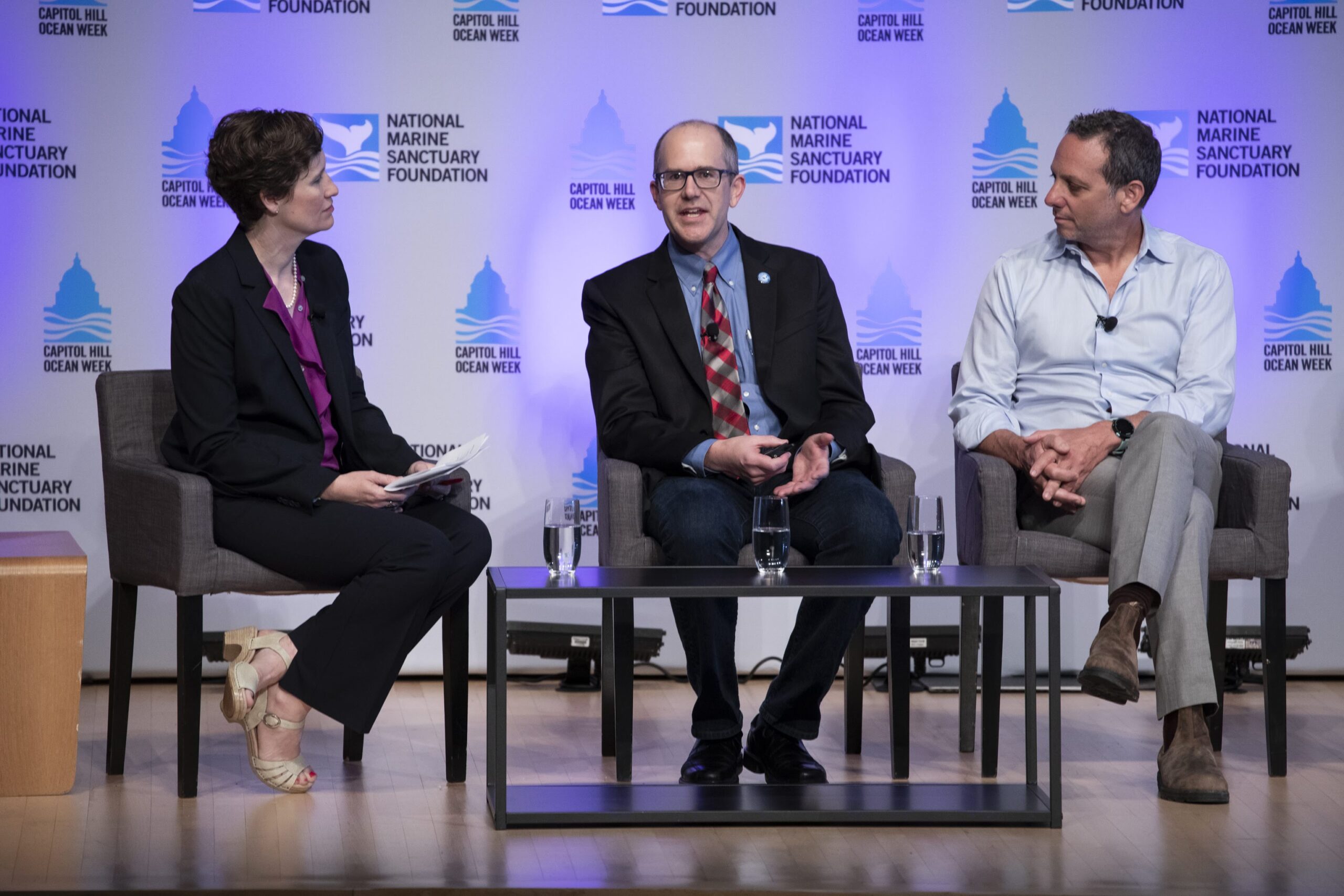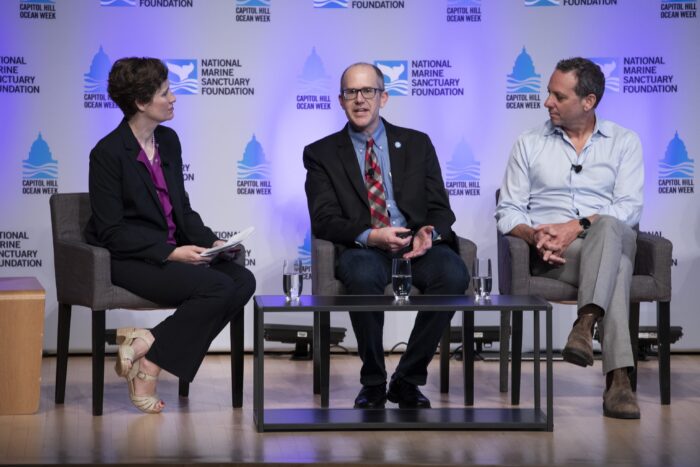
CHOW Chat: Sarah Cooley on Communicating Ocean and Climate Connections
The Capitol Hill Ocean Week 2023 program will explore the ocean-climate connection and how we can make ocean conservation part of climate strategies and nationally determined contributions to address climate change. Sarah Cooley is a member of the 2023 CHOW Advisory Committee, Director of Climate Science at Ocean Conservancy, a Coordinating Lead Author on Working Group II of the IPCC’s 6th Assessment Report, and chapter author on the 5th National Climate Assessment. We spoke with Sarah about her role on the Advisory Committee, her hopes for this year’s conference, and how protecting our ocean can help us achieve climate and societal goals. Register today at CapitolHillOceanWeek.org!
How have you hoped to shape this year’s Capitol Hill Ocean Week through your role on the Advisory Committee?
I hope to help bring together a broader range of perspectives, experience and expertise than ever before. So we’re sifting through our networks to identify and invite the best possible panelists and speakers to participate in this year’s plenary sessions.
What are you most looking forward to during Capitol Hill Ocean Week 2023?
I can’t wait to learn about topics I know less about, like offshore wind, because I know the panelists are going to have the most recent information and fresh perspectives. CHOW is going to be a crash course in the latest developments on so many topics!
The theme of this year’s conference is Ocean X Climate. What is one thing you want to share (or that you wish more people knew) about how our ocean and our climate are connected?
The ocean makes our planet habitable for life as we know it. As human activities alter the climate, it’s changing the ocean and altering all the systems that life on earth, and human societies, depend on. It’s essential for our future well-being to remember the tight connection between the ocean and climate!
What is a common misconception about climate and our ocean?
It’s easy to think that the ocean is just a victim of climate change and we, the beings that depend on the ocean, are also therefore victims. But as the ocean is changing, people are constantly adapting and adjusting too. This means the ocean is already a solution space for people. By developing climate solutions that are ocean-focused, we have the opportunity to make coordinated, well thought-out changes that will both curb emissions and support equitable human development.
How can protecting our ocean help us to achieve climate and societal goals?
We know from international assessments by IPCC and IPBES that climate goals, biodiversity goals, and sustainable development goals are like three legs of a stool – each supports the other. So, protecting the ocean’s biodiversity helps ensure there’s a large bank of ecosystems and functions that can be leveraged to offer climate adaptation options – things that are hard to engineer, like habitat, coastal protection, and cycling of nutrients and water. Healthy ocean ecosystems offer more possibilities for good, just livelihoods and strong cultural connections, too.
How do we connect climate science to climate policy, and inspire policymakers and the public to be climate champions advocating for climate action? What are some ways we can translate climate science for different audiences and emphasize the urgency of climate action?
It seems like everyone has a strong emotional connection to the ocean – even people who don’t get to visit the ocean still enjoy knowing it’s out there, wild and wonderful. Those of us who help speak for the ocean can tap into people’s emotional connections while also showing that small, sustained actions towards adaptation and mitigation are just as meaningful a part of ocean-based climate action as the big wins like limiting global greenhouse gas emissions. People don’t have to be ocean science experts to understand messages about how climate impacts to the ocean are likely to change their daily lives or experience of marine systems, and it’s on us experts to help tell those stories. It’s also on us to explain the pros and cons of different options, to enable people to make informed decisions that lead to the future ocean they really want. Comparing scenarios is extremely helpful, and well-chosen metaphors are also important to help unpack complicated concepts and connections for non-specialists. It can be hard for scientists and policymakers to step outside the “specialist” mindset and find ways to tell the human-focused stories of what we know, and what we might choose to do, but it’s essential for bringing in everyone who has an interest in the ocean’s well being, and help involve everyone in deciding how we might choose to safeguard it in the future.

Sarah Cooley (left) moderating a panel discussion at Capitol Hill Ocean Week 2019. Photo credit: National Marine Sanctuary Foundation
